Having commissioned an annual Christmas
card artwork for several years now, one would think that there might already be
a formula or process for getting the next one done and dusted each year.
In fact, there is: start scouting around
for possible artists soon after the New Year, narrow down the choice of artist
by Easter Sunday, ask the chosen artist for a few studies representing possible
Christmas artwork ideas, choose one of those to pursue by Trinity Sunday, give
the artist until September or so to complete the artwork, have the artwork
professionally photographed before All Saints’ Day, send off the photographs to
the layout artist, then finally have the cards printed and delivered before the
first Sunday in Advent.
Whether the actual process complies with
the above blueprint is another matter altogether of course. Thankfully, in most years it does, more or
less, or at least the built-in allowances in the schedule allow for the
possibility of recovery in case of delays or hitches.
In some years, one can “cheat” by starting
the selection process even before Christmas of the prior year! Unfortunately, this past year, that had not
been the case, as it had already been the end of summer and we still had not identified
the right artist for the commission. (I
am happy to note, though, that the usual reason for this is that many of the
artists recommended to us are too busy with prior commissions or are preparing
frantically for upcoming exhibitions, rendering them unable to complete yet a
new commission in time for Christmas.)
Fortunately, a strong recommendation came
in before the onset of the monsoon season, and after preliminary introductions,
we had agreed to look at some studies, which came in in mid-August. The first one was provisionally entitled
“Three Kings”.
The next one was called “Holy Family”.
Clearly these were very good starting
points, which begged to be rendered in full color. The artist dutifully acceded, using the “Holy
Family” study to show off her preferred color scheme.
With such a bright and lively palette, the
obvious next step was to go on with the production. However, we chose to go with the “Three
Kings” study as the basis of the final artwork.
The artist confirmed the start of the artwork production by sending me
this color palette strip.
and by mid-month, the finished artwork had
been delivered, with professional photography completed just a couple of days
after,
and the printed cards on-hand by late
November.
Born in Marilao, Bulacan in 1988, Catherine “Catcat” Mendoza graduated
from the University of the Philippines in Diliman in 2011 with a bachelor’s
degree in Fine Arts, major in Visual Communication, where she also took up
ceramic classes. She is now based in
Occidental Mindoro, where she continues to work as an artist in painting and
sculpture.
Catcat’s work is driven by her interest in the spiritual beliefs and
traditional practices of indigenous people, with a perceptive understanding of
their social and cultural values
and their significance in today’s contemporary society. Her present work, “Tatlong Mago,” reflects
these interests, with the representation of traditional textiles and musical
instruments working with a seasonal color palette to depict archetypal
Christmas imagery.
As her relationship with art evolves, personal transformations
navigated by the
teachings of the ancient people leave an imprint on Catcat’s
artworks. Her hope is that the process
serves as a conduit to a healing path, which is what she believes is the heart
of her craft.
- - - - - - - - -
In most years, we also have a standard
Christmas gift that we distribute to all the individuals on our Christmas
list. In previous years, these had been
specially selected (I do not dare pretentiously say “curated”) compact discs
(CD’s) and digital video discs (DVD’s).
However, I have noticed that many people, especially the young ones
(i.e., everyone younger than me, which is probably three-fourths of the
Philippine population), no longer own playback devices for these discs. Apparently, even if these technologies were
groundbreaking twenty or thirty years ago, and are still mainstays in our own home,
most people now consider them archaic, the same way I thought vinyl records
were (although surprisingly those are now returning, but that’s another story),
and just get their audio and video feeds via the internet and on handheld
smartphones and equivalent devices.
Since we don’t like to give food for
Christmas (there’s already too much of that going around this time of the
year!), the thing to do was to identify another kind of standard gift that was
not going to be rendered obsolete by rapidly advancing digital technology. Without reaching too far back into recorded history
(scrolls? parchment? stone tablets?), the obvious medium was the
codex – that’s “book” to us 21st century homo sapiens sapiens.
We had given books as standard Christmas
gifts many times in the past, but it has never been easy to pick one that was
not only not ubiquitous and pedestrian enough that it would not already be on
the bookshelf of the recipient, but also so well-written to be our recommended
read, AND sufficiently representative of what my family and I believe in and
subscribe to. Amazingly, there were a
few such books that had come out in the past year, but we had focused on the
outstanding new book from Raissa Robles, Marcos Martial Law: Never Again.
We were lucky enough to place a
sufficiently large order with the publisher for a few hundred copies of the
book last summer, at a bargain price and before it came out in bookstores,
where it promptly sold out.
I don’t usually do book reviews, and this
article is about giving art for Christmas, so instead of a review, let me talk
about what we next did with the book. In
the past two years, our standard gifts (a DVD, then a book) were artfully
packaged for us by our townmate, craftsperson and heritage advocate Rheeza
Hernandez. This year, we had asked her
to take the Marcos Martial Law book and recommend appropriate packaging for
it. She promptly showed me three studies
by mid-September. The first one was
“Hand”.
All of the options went for red-spray-painted-stencilled
jute sacks, barbed-wire rendered in silver-painted rope, and a tricolor “puni”
dove.
We chose to go with “Hand and Head”. And in case the packaging was too “bloody”-looking
and perhaps too morbid for Christmas, Rheeza and I agreed to change the ribbon
from red to green.
By mid-November, most of the few hundred copies
of the book had been packaged by Rheeza, ready for dispatch or hand delivery.
So if you were on our gift list for this
book, consider yourself doubly fortunate for having received an originally
crafted artwork (in the form of special book packaging) from the Rheeza
Hernandez Workshop in Malolos, Bulacan.
- - - - - - - -
And triply fortunate because you would also
have received Catcat Mendoza’s original artwork “Tatlong Mago” in the form of
our 2016 Christmas card.
From my family and me to you and yours,
Merry Christmas and a Happy New Year!
Maligayang Pasko at Manigong Bagong Taon!
- - - - - - - -
Originally published on 31 December 2016. All text and photos (except where
attributed otherwise) copyright ©2016 Leo D Cloma. The moral right of Leo D
Cloma to be identified as the author of this work has been asserted.
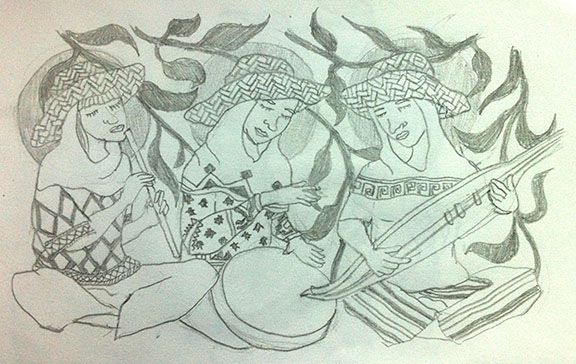
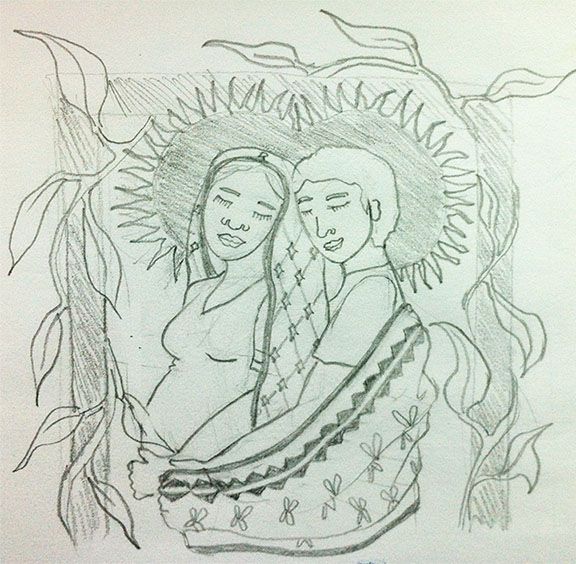
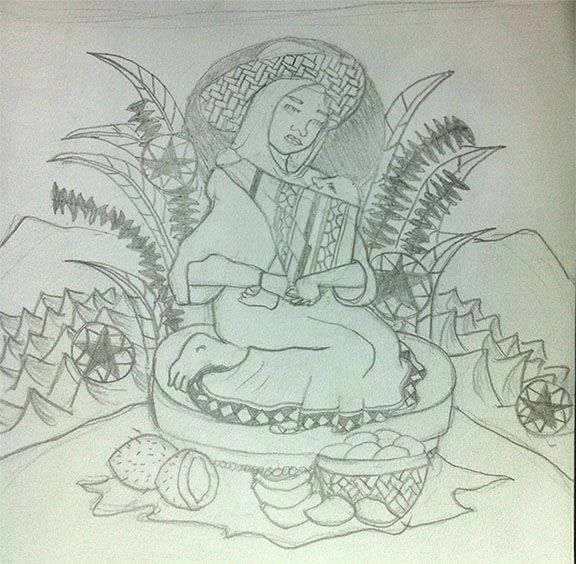
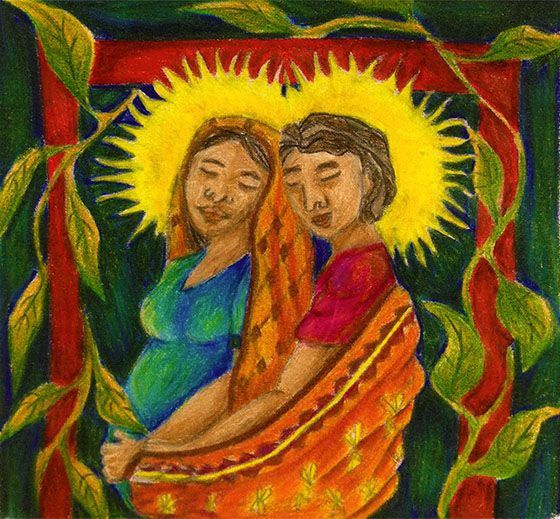

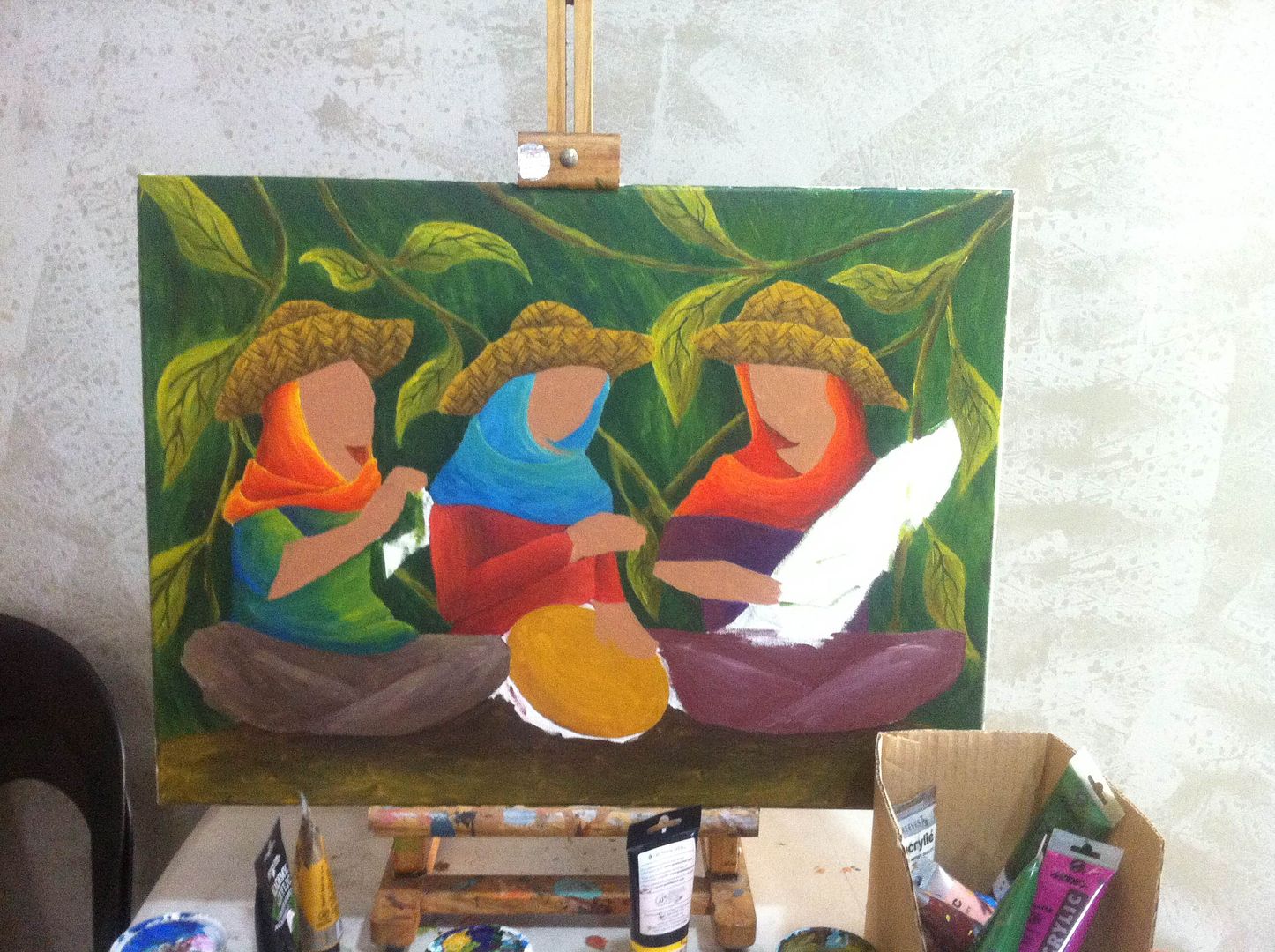
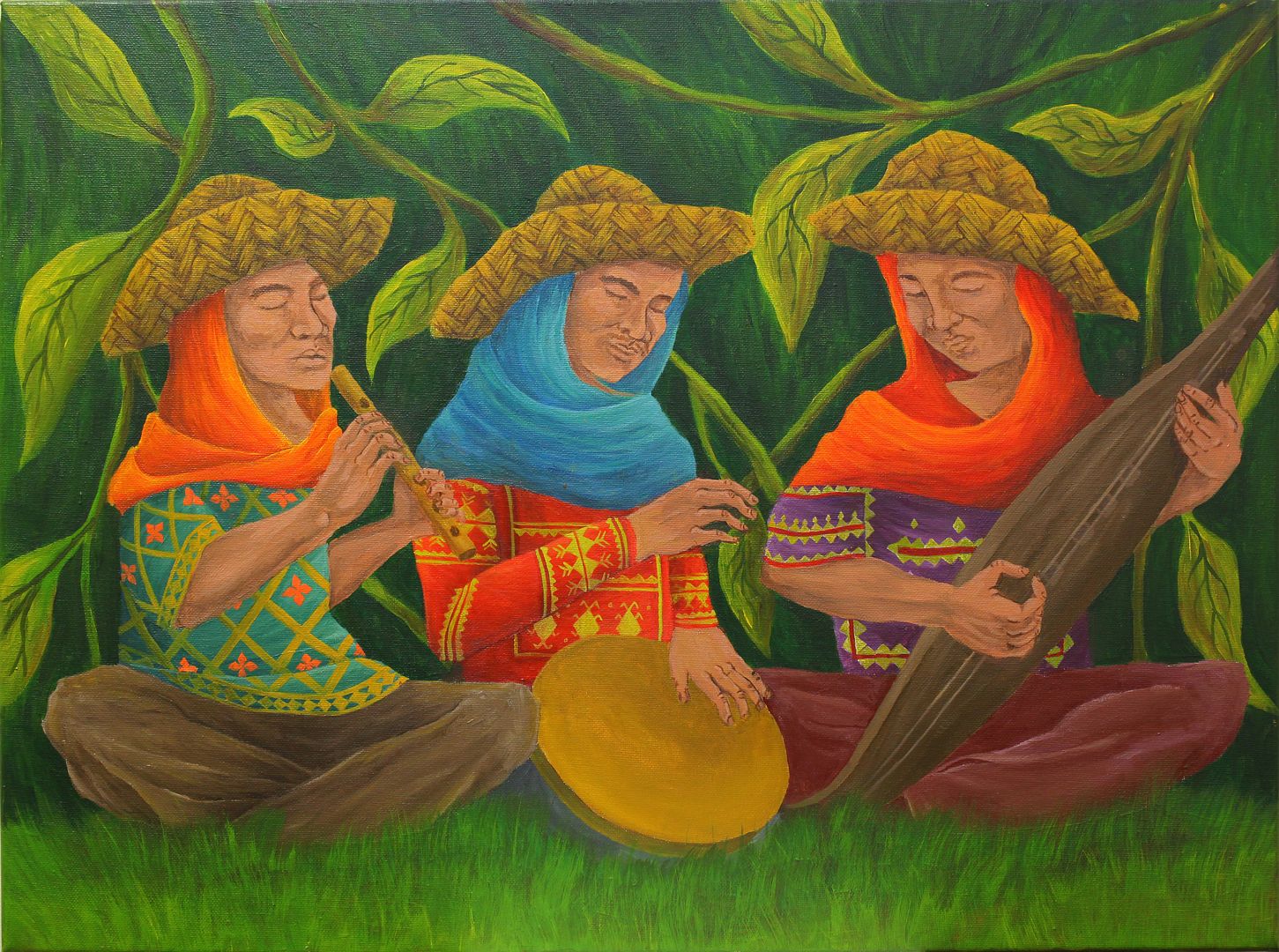








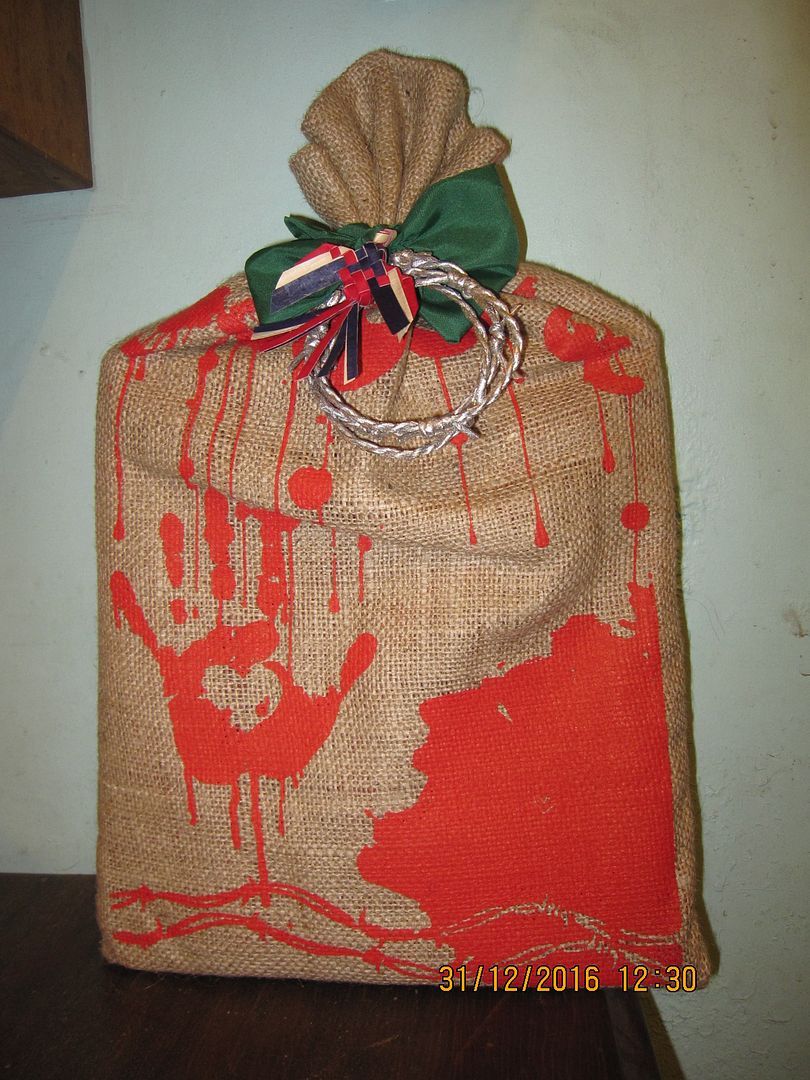
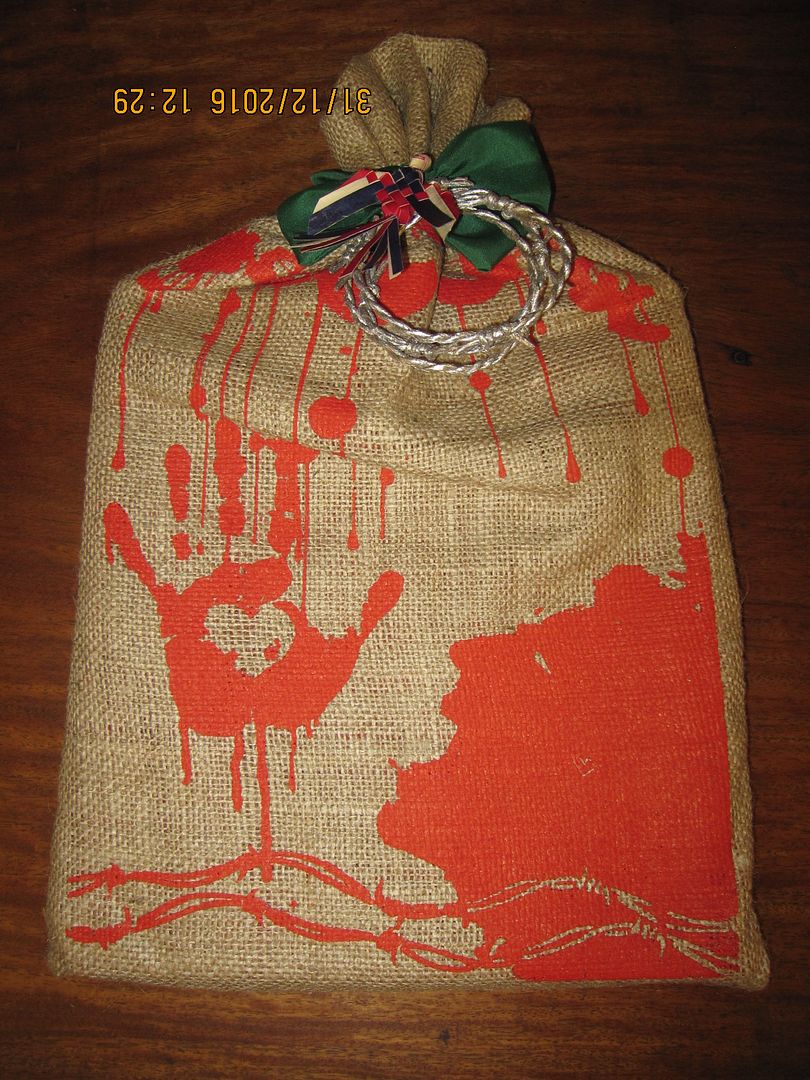
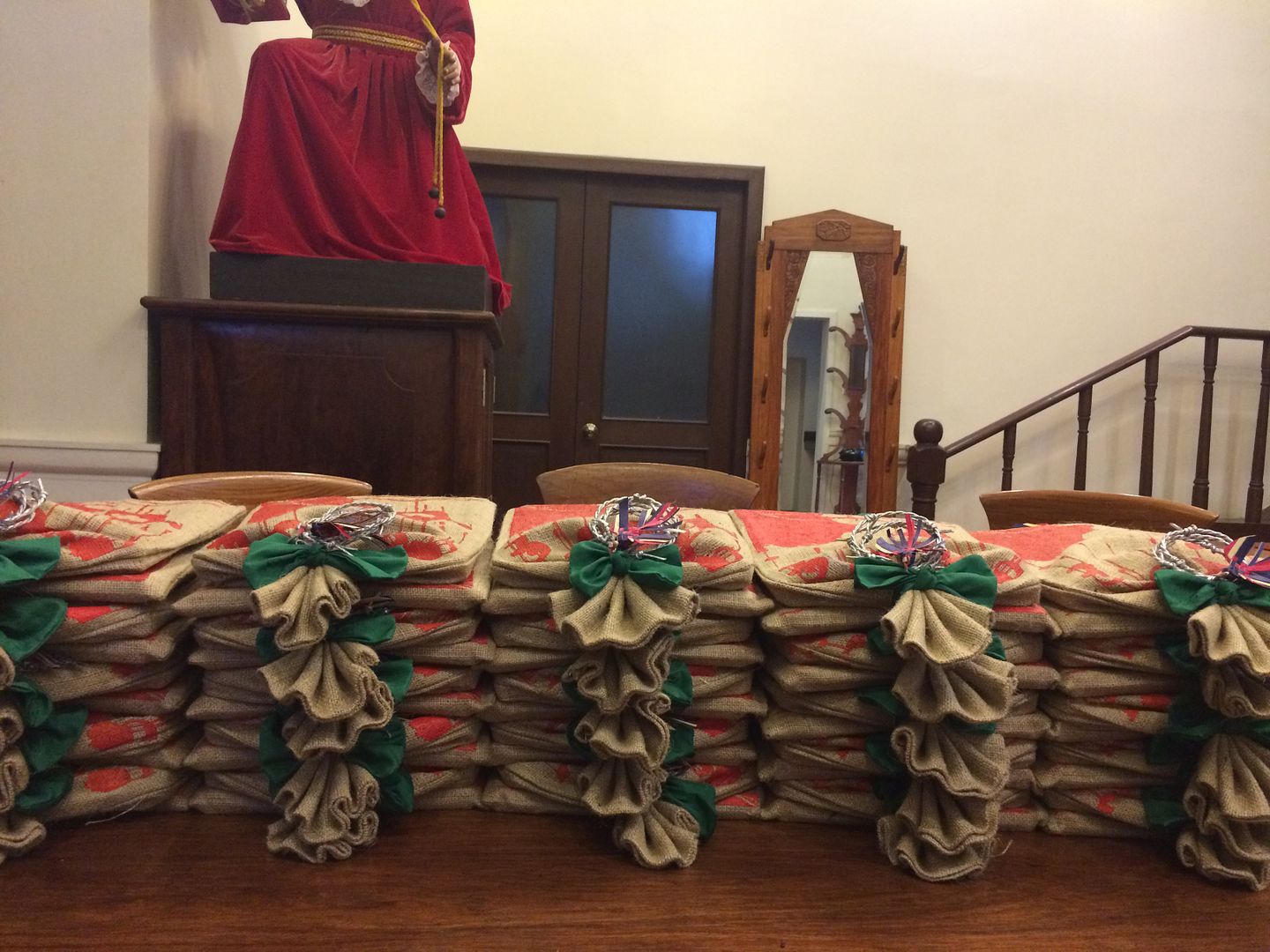
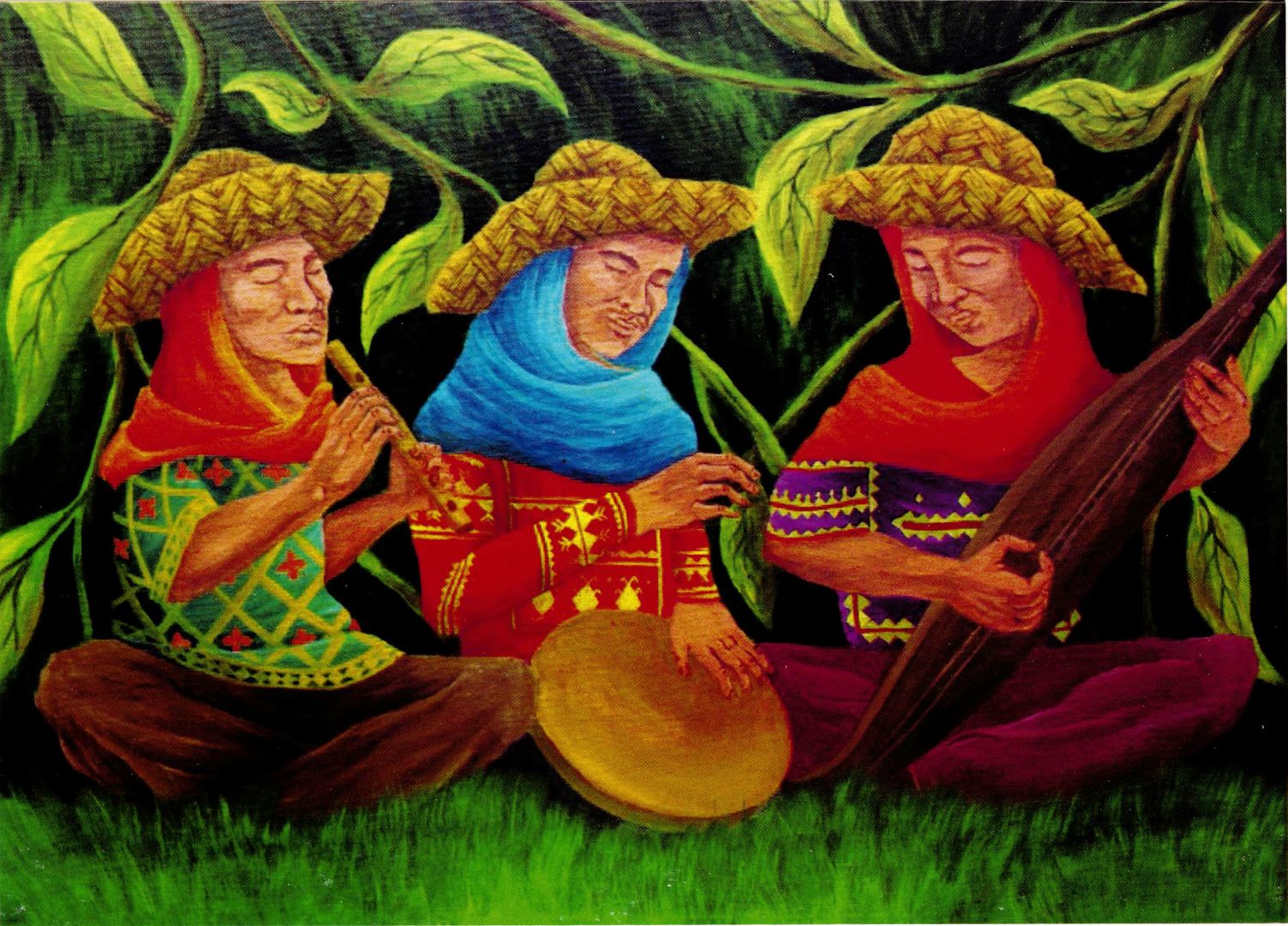
No comments:
Post a Comment